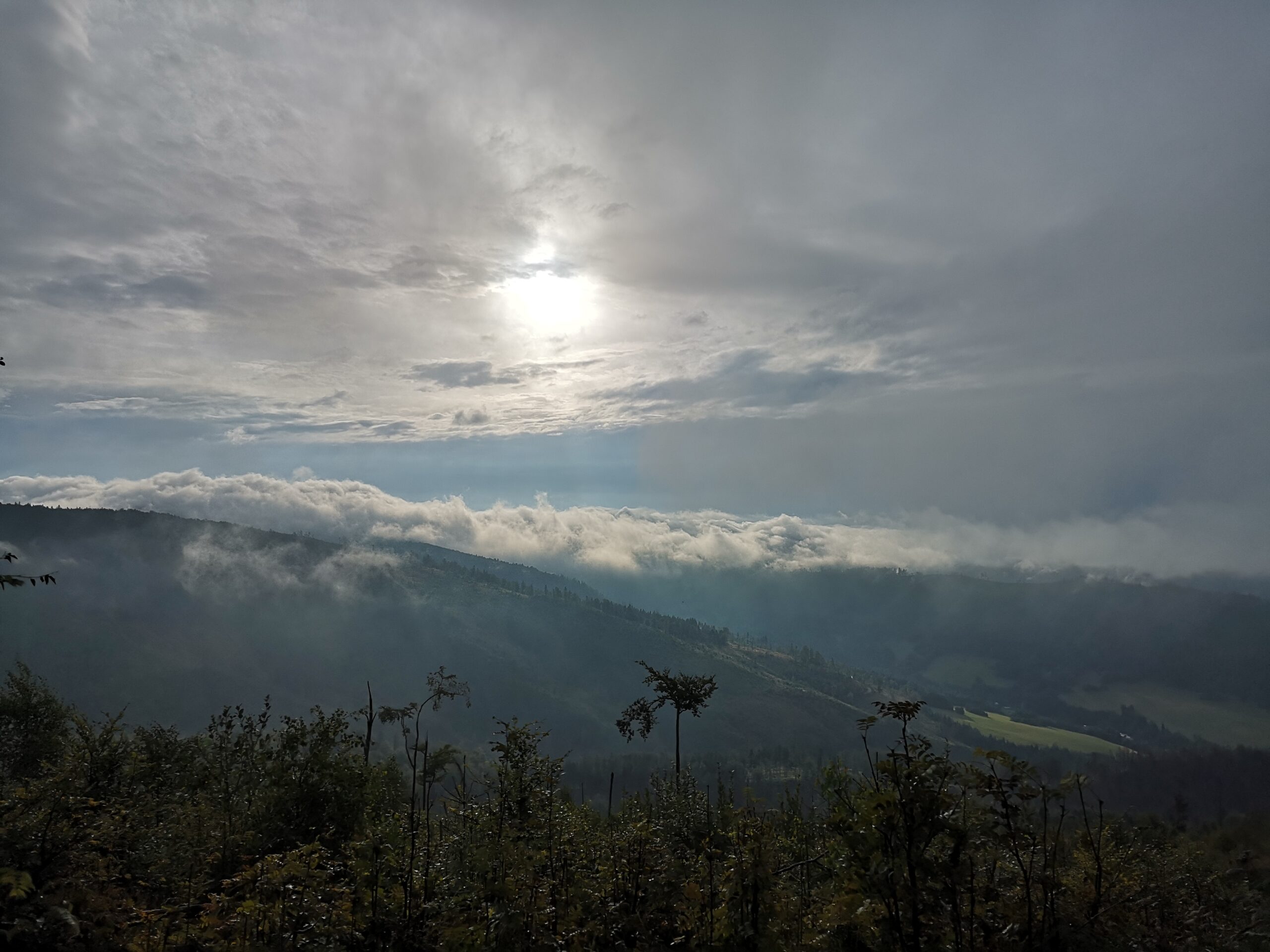We have been doing 30 km of mountain climbing. Clouds have been gathering for several hours.
But it was not supposed to rain and we only had a few kilometres left to the car.
We will make it in time I console myself.
Naive me. A few minutes later the drops hit us. The black cloud begins to rumble.
And I’m afraid of storms in the mountains.
25 km, hot, 30 C. We drink water from the beakers and dream of a cold drink.
We pull with the rest of our strength, because we don’t have much water and we still have a lot of kilometres
ahead of us.
Rain, storms, mud, snow, sweat, corns, fatigue, hardship.
Why do I push myself into these mountains?
I’ve been hiking in the mountains since 2014 regularly. Almost all hikes with Asia.
Sometimes we’ll do 20 km, sometimes 35 and 50 km will happen.
The Beskids, the Tatras, the Sudetes, the Bergamas Alps, the Pyrenees.
But why do I like it? Why do I go regularly, whether rain, rainy or sunny?
Movement is health!
Movement is health. That much is obvious. Physical exertion develops and strengthens.
Our bodies, our muscles bones, tendons.
One of the most popular and simplest ways to move is walking.
Walking. And according to scientists, as few as 7,000 steps are enough, not 10,000.
But why not make this walking more attractive with additional benefits?
That is, mountain hiking.
I don’t mean extreme crossings – leave those to the professionals – or technically difficult trails.
It is possible to walk fairly simple trails in the mountains. There will be suitable trails for almost everyone.
Of course, measure your strength against your strength. Ten kilometers in the mountains
is a more difficult effort than the same distance in the city or in the woods.
Although a hot 30°C is better on a shady trail than on a heated street.
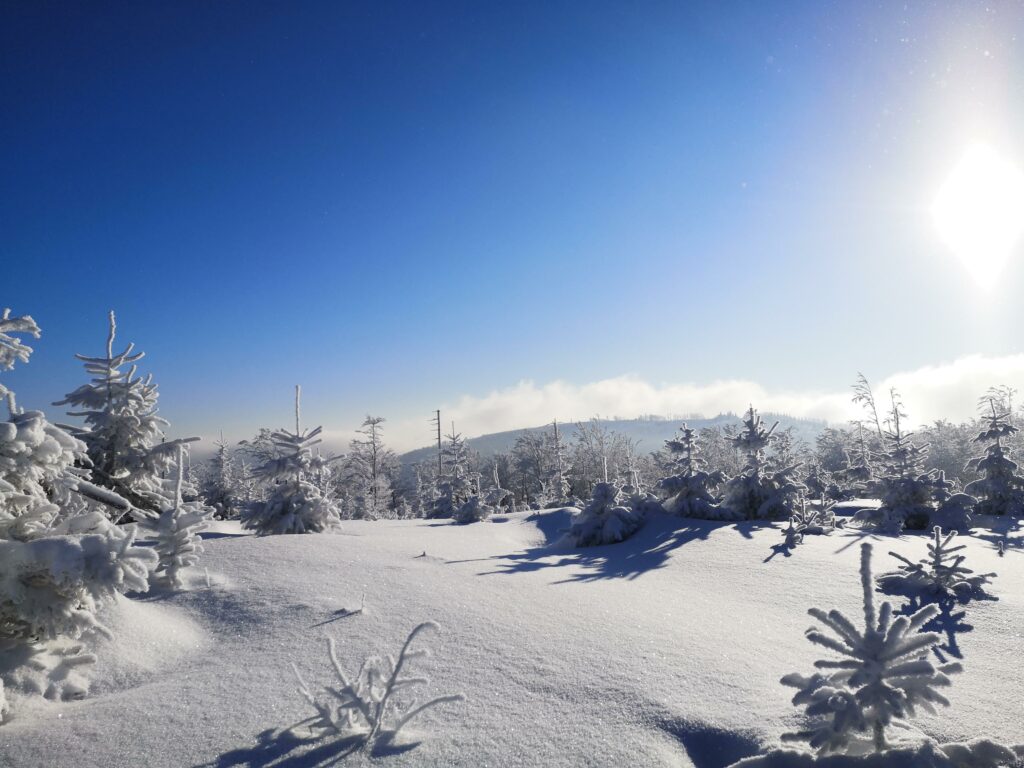
Rest for the head
We live in a time when we are bombarded with stimuli.
Notifications on the phone, billboards and neon signs, ads and news from the radio, television.
FOMO, or fear of rejection, when we are not online.
Information noise. It’s so big that it often happens to us that we don’t know how to be bored.
The amount of information, most of it useless, is growing at an alarming rate.
Information overload is a real problem. And still, you’d rather pull out your phone
than to just sit and not think.
We can deal with this in several ways. Tips on how to avoid distractions are quite numerous.
Meditation is also recommended. But, you can also go to the mountains.
Yes, it makes sense, and it makes a lot of sense. Contact with nature, forest, space can give us relaxation.
All you have to do is let it happen. Fortunately, in the mountains and poor and dangerous
to use the phone on the trail.
But if you’re sitting somewhere on the trail, don’t take out your phone. Look at the views.
Enjoy being closer to nature. Our brains deserve a rest.
Work, daily life, books, TV, internet, training, hobbies and so on. For those few minutes, leave it down.
In the mountains you can breathe. Stay with yourself. Stay with your friends.
Give your head space to think about everything and nothing.
And then, you will be surprised how a great idea or an unexpected solution
to a certain problem will suddenly come to you,
that has troubled you for a long time.
And that’s only because you went to the mountains for a hike.
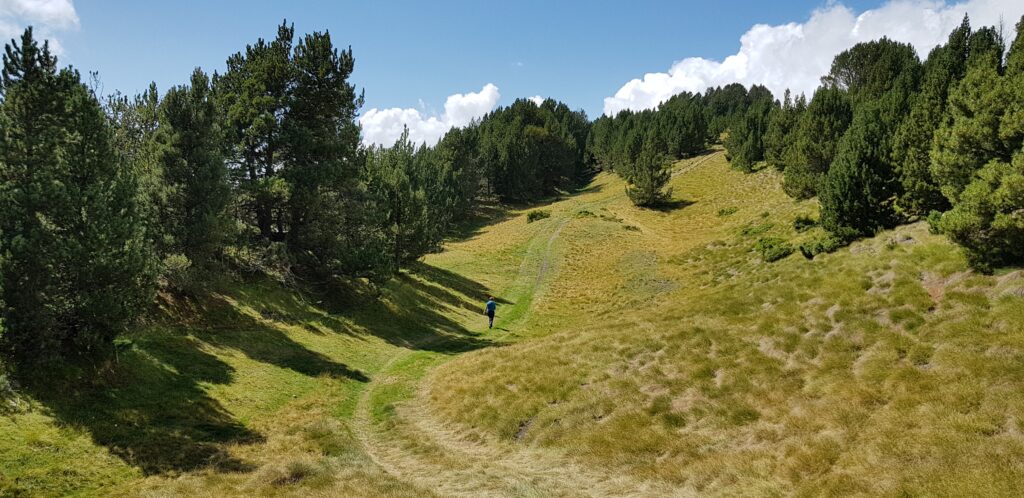
Be closer to nature
This point is related to the previous one. In spring, the noisy season begins on my estate.
But what a beautiful one! We have a green estate and lots of birdhouses. And when spring comes the birds start their treble.
You can open the window, go for a walk, on the balcony in the block of flats and you can hear the birds all day long.
And they start already in the pale dawn.
And what happens in the forest on a mountain trail? That’s where the concerts happen.
Listening to the sounds of nature has a positive effect on your mood and health
The sounds of nature can soothe us mentally and physically. Reduce stress, improve mood.
And another aspect of nature’s soothing effect is this ordinary, or extraordinary, contemplation of nature.
Look at flowery meadows, glades (not just crocuses), field meadows and just green forest.
Observe nature. She has been here on this planet for millions of years. It goes and develops and dies at its own pace,
unfortunately already heavily disturbed by us humans.
My girlfriend and I often tell each other how many and what animals we met on the trail.
Be it roe deer, deer, foxes, hares, chamois. It is always great fun for us.
We respect their peace and quiet, but it’s nice to see an animal in its natural habitat than in a photo in a book.
Such watching nature in concentration can and should give you moments of respite and peace.
To show that with the enormity of mountains, rocks and valleys, maybe this particular your problem,
however, is not worth so much of your attention triviality.
And this is scientifically proven: listening to the voices of birds or simply communing with nature.
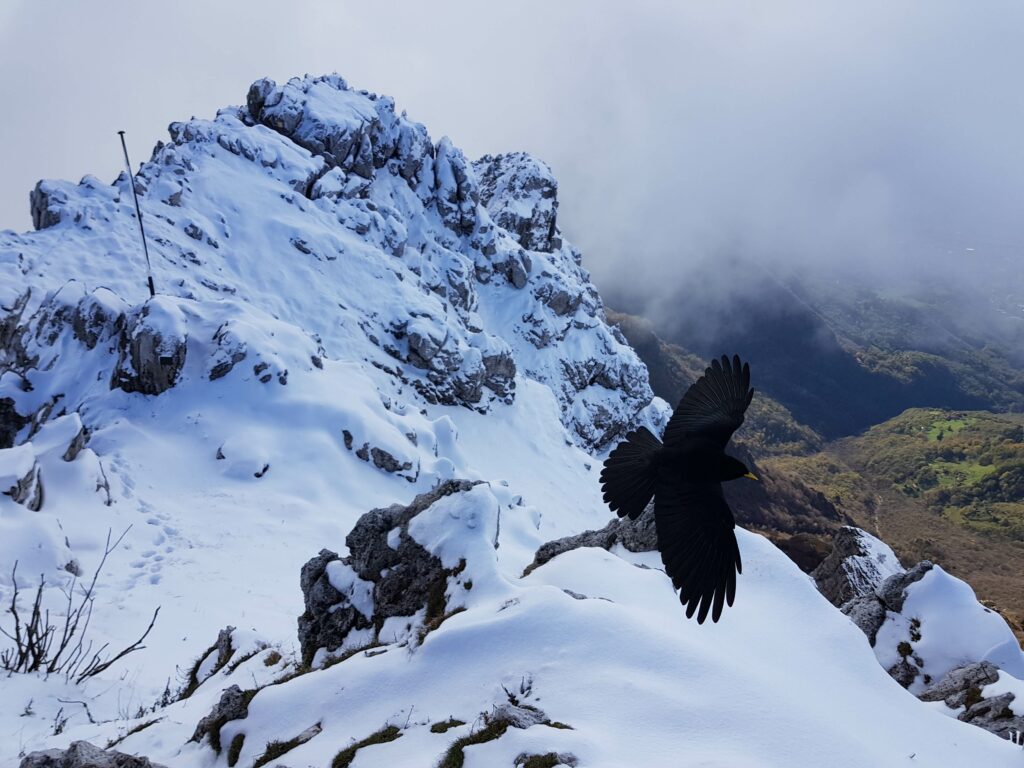
Poles! Don’t always use them!
The achievements of technology are a big help.
I remember a car atlas in the glove compartment of the car when Asia and I went to the Beskid Niski or Bieszczady.
Now? The GPS in the phone.
Trekking poles are also such an acquisition. In the beginning they were screw-on and now also snap-on (for the so-called lever).
Plus various versions differing in weight, type of grip, purpose, durability, etc.
And the use of the poles is very good.
They help on the descent and when going uphill.
But as it happens, balance and skillful use are important. Because constantly using poles is not good.
And they are no substitute for our sanity and sense of terrain. I convinced myself of this once behind Rycerzowa,
when on a wet trail, but flat, I turned eagle because I wanted to go faster. Because I got the poles in the end.
That’s not how it works.
The poles are quite a convenience, but we can’t replace our sense of balance, dexterity and reason with poles.
With physical stimuli, we develop our body and exercise our sense of balance.
That’s why sometimes it’s worth leaving the poles at home or clipped to your backpack.
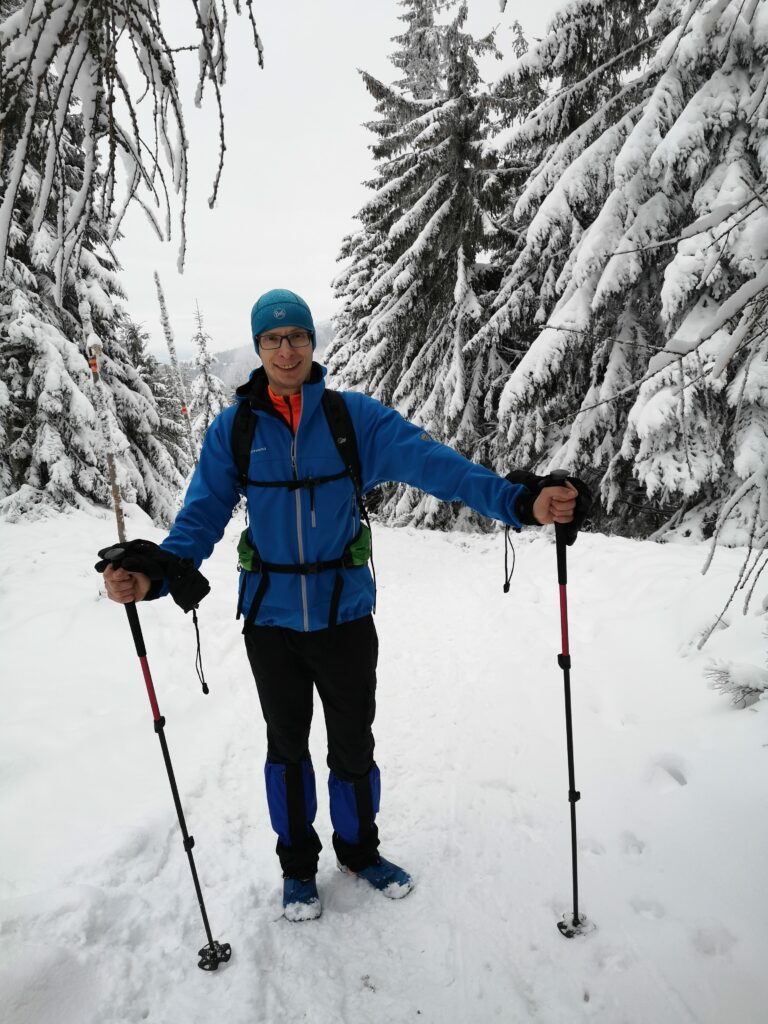
Motivation and consistency.
In the mountains I walk. I rarely read about the mountains (except on Asia’s blog).
However, there is one thing about the mountains that delights me.
I’m on a ridge. Or in a valley. Somewhere after a few kilometers of trail. In the distance I see another peak to climb.
Far away. It seems not within reach of my hands, come back, within reach of my legs.
That I will walk and walk there, and where else to descend to the car.
And after a few maximum hours “suddenly” I am on this mountain. It was far away yes,
however I was gradually getting closer to it. And this is what I really like about hiking.
Something that seems far away to us, hardly attainable actually is within reach.
You have to go, take care of yourself and voila, we are at the top. And then on the next one.
If you are struggling in your daily life with difficulties and seemingly too big challenges
then start with the proverbial first step and quietly move on.
Don’t think about the goal and do your own thing, those actions that are necessary
and bring you closer to your goal until you get there.
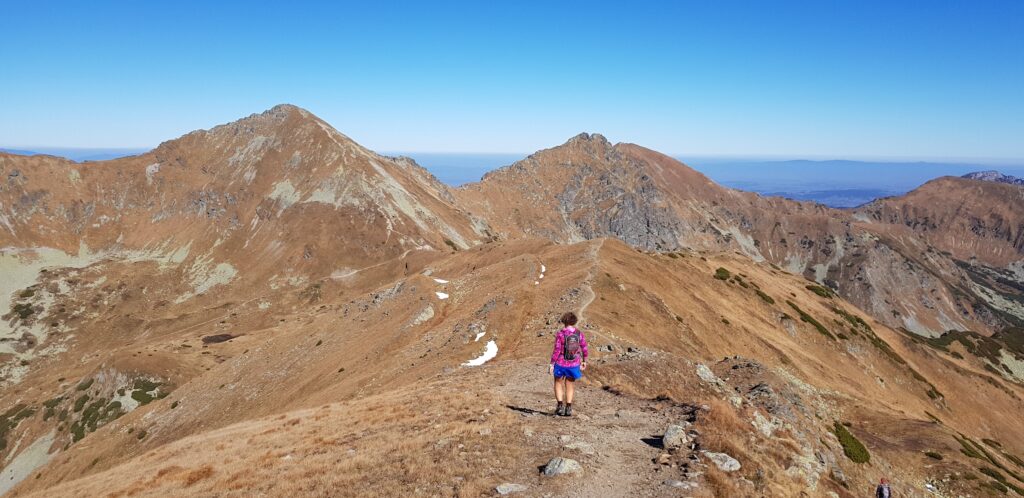
Preparation is the key!
Descending from Krzyzne in Tatra Mountains.
A moment of inattention and I lie in the bushes. A simple stretch, and I fell over.
Bushes cushioned the fall. It’s a good thing I only fell, because I might as well have twisted my ankle.
The trail in the Bergama Alps. The hiker in front of us on a relatively straight section loses his balance with his poles
and slides down a slight slope. She only stumbled and her companion helped her back onto the path. But after all, it was a simple, undemanding trail.
In the mountains we are small. We mean nothing against the power of the wind, heat, snow, storm.
We mean nothing when we twist an ankle or suffer another injury on the trail. We don’t have a cab at hand.
That’s why it pays to be prepared for a trip to the mountains. Double.
The first kind is fitness and physical preparation.
So that in the middle of the route we do not have the feeling that “and this is where I will sit and wait for the bus”.
The second kind is logistical preparation. Poncho or rain jacket, headlamp, first aid kit,
a charged phone with the number for GOPR (985 OR 601 100 300) and the Rescue app
(check which are unavailable in your country).
100 times we may only carry these things, but the 101st time we may need them badly.
Be prepared.
